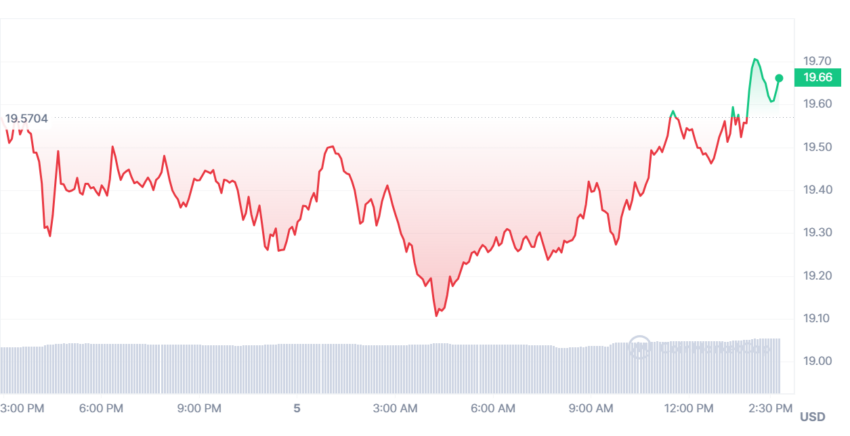Visa is expanding its capabilities for digital currency settlement, according to a September 5 announcement. The payments giant will now utilize the dollar-pegged stablecoin USDC and blockchain networks like Solana for faster cross-border payments.
In the past, Visa tested receiving Circle’s USDC payments on the Ethereum blockchain from select partners. However, the payments giant has decided to pick Solana as its partner, thanks to its faster transaction speeds.
Visa Chooses Solana’s Faster Transaction Speed
Solana (SOL) processes up to 65,000 transactions per second, while Ethereum (ETH) handles only about 30 transactions per second.
The company is now piloting the send side by making USDC payouts to merchant acquirers Worldpay and Nuvei. These acquirers can offer merchants the option to receive funds in USDC or convert them to fiat currency.
Visa has its own USDC account which will be used to pay Worldpay and Nuvei. They can then send USDC directly to merchants.
After customers purchase goods using Visa cards, funds must move between the cardholder’s bank and the merchant’s bank. Visa acts as an intermediary in this complex process between thousands of institutions globally.
Learn more about stablecoins like USDC: What Is a Stablecoin? A Guide to Asset-Backed Cryptos
Typically, settlement for cross-border transactions takes days due to lengthy currency conversion and international wire transfers. Digital currencies like stablecoins aim to streamline this process and reduce settlement times.
Furthermore, blockchain transactions with stablecoins like USDC can have lower fees compared to traditional payment rails. As a result, this allows Visa to reduce costs associated with payments.
Faster Payments and an Option to Use USDC
“By leveraging stablecoins like USDC and global blockchain networks like Solana and Ethereum, we’re helping to improve the speed of cross-border settlement and providing a modern option for our clients to easily send or receive funds from Visa’s treasury,” said Cuy Sheffield, head of crypto at Visa, in a statement.
Some merchants may prefer receiving settlements in stablecoins rather than fiat currency, especially those interacting with blockchain and digital assets. While processing time for Visa’s treasury remains unchanged for now, the company sees potential to accelerate settlement in the future.
The market has not failed to notice the adoption of these digital solutions. SOL’s price saw a very modest upswing of 1.3% within the first two hours of trading following the announcement, according to CoinMarketCap.
The post Solana and USDC Transaction Speeds Open the Door to Wider Adoption appeared first on BeInCrypto.
